InTune
Free "Concert for Our City" Welcomes Listeners Back to Symphony Hall
The BSO is back! After a year and a half away, Symphony Hall has finally reopened its doors and welcomed concertgoers back to experience the power of live music. Enthusiastically, Boston greeted the orchestra with open arms, especially at the BSO’s Concert for Our City: Reunited at Symphony Hall, a free public concert performed before a full house. Although the pandemic had and still has drastically impacted the arts globally, eager audience members masked up on October 3 and took their seats in the storied hall for a Sunday afternoon they are unlikely to forget.
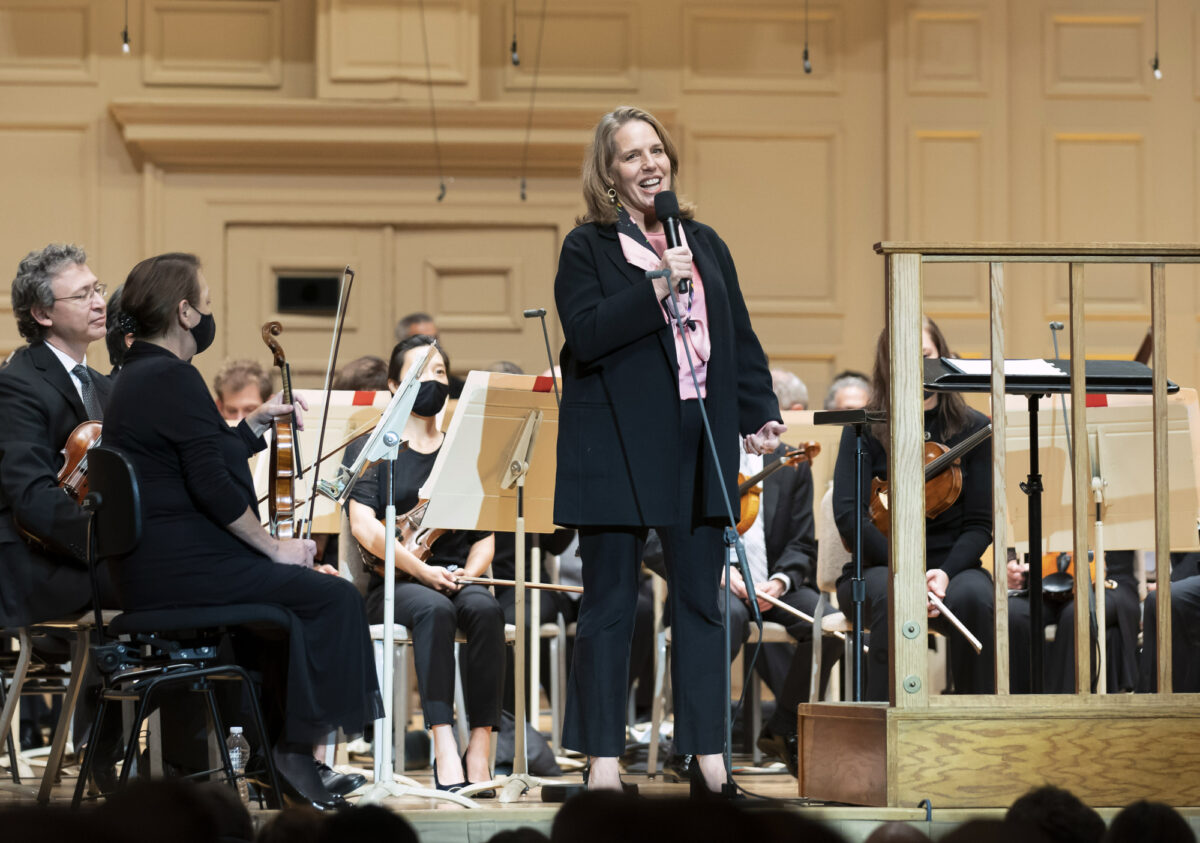
Early in the program, Eunice and Julian Cohen President and Chief Executive Officer Gail Samuel took the stage to greet the audience. "I can think of no better way to cap off the BSO’s first weekend of concerts here in over 18 months," Samuel explained, "than by celebrating it with all of you, our wonderful family of partners and friends.” She was quick to acknowledge the extra effort that it takes to attend public events, but could not hold back her appreciation and gratitude. Before Samuel left the stage, she took a moment to mention “the musicians who make the Boston Symphony a singularly brilliant orchestra," and "the people who make Boston a singularly special city."
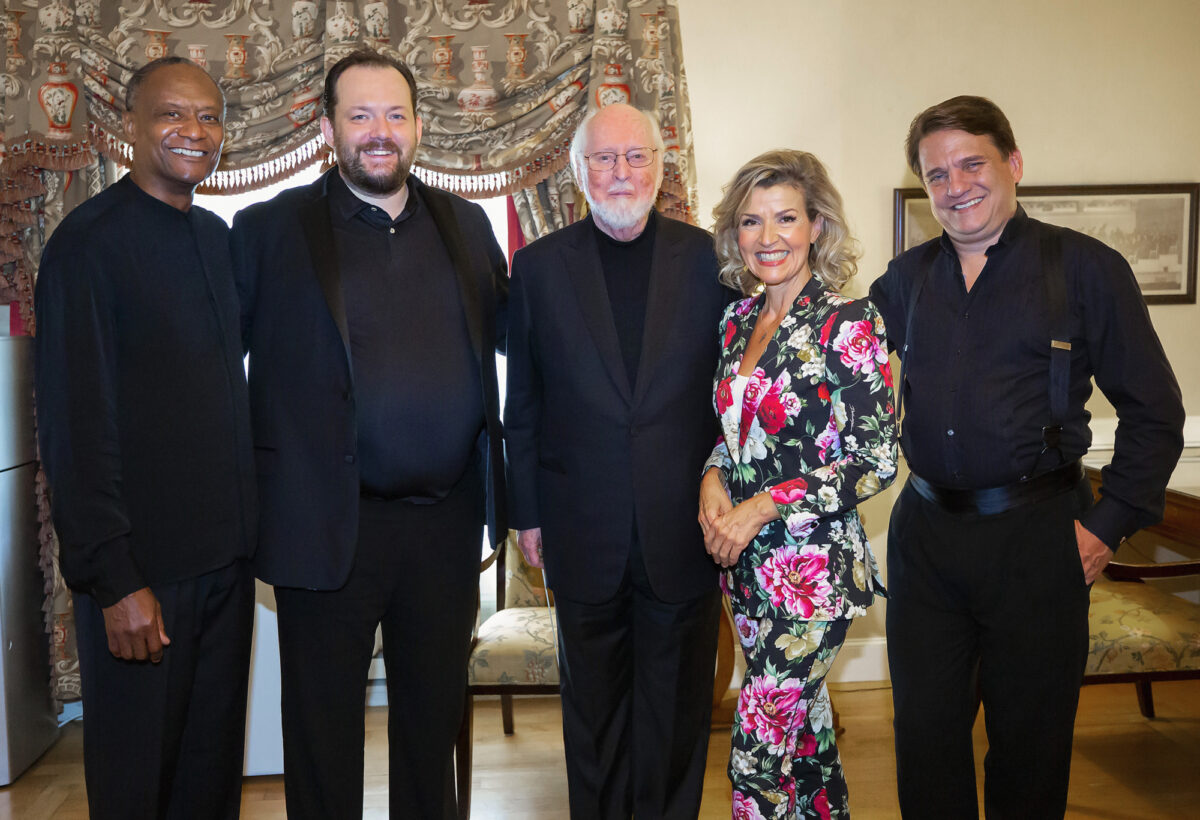
The concert was notable not only for its diverse and varied selections, but also by the appears of four of the BSO’s title conductors leading the program throughout the afternoon. Thunderous applause greeted Ray and Maria Stata Music Director Andris Nelsons as he took the stage to lead the orchestra in a performance of Beethoven’s "Consecration of the House Overture," not coincidentally the first piece played at Symphony Hall’s opening night in 1881. Next, Germeshausen Youth and Family Concerts Conductor Thomas Wilkins took the podium and thanked the audience for the continued support for the musicians and the organization. He then conducted a pair of compositions, "Singing River" and "Whippoorwill’s Shoes" from William Grant Still’s Wood Notes. The performance was followed by Keith Lockhart, Julian and Eunice Cohen Boston Pops Conductor, leading the orchestra in three pieces. The first, Mark Cumberland’s "The Ringtone Cycle," elicited laughter at its approach at musicalizing a common everyday sound. Lockhart referred to the next piece, Rachel Bruerville’s "Dancing on Tiptoes (but never falling)," as soothing, noting how music has that innate quality, before finishing their set with a rousing performance of W.C. Handy’s "St. Louis Blues."
Andris Nelsons returned to the podium with some brief comments about how overjoyed he was to see audiences back in the hall and how grateful he was. He then led the orchestra in the Fifth Movement from Béla Bartók’s "Concerto for Orchestra," a work commissioned by legendary BSO Music Director Serge Koussevitzky and premiered by the orchestra in 1944. Following the standing ovation, Lockhart and Wilkins returned to the stage, and the three were joined by George and Roberta Berry Boston Pops Conductor Laureate John Williams to rapturous applause. The enthused audience was treated to Williams conducting selections from his own iconic score to the film Star Wars. A final standing ovation brought the memorable afternoon to a close. But, this return of live audiences to Symphony Hall was only beginning after so long apart.
Scenes from "Concert for Our City: Reunited at Symphony Hall"
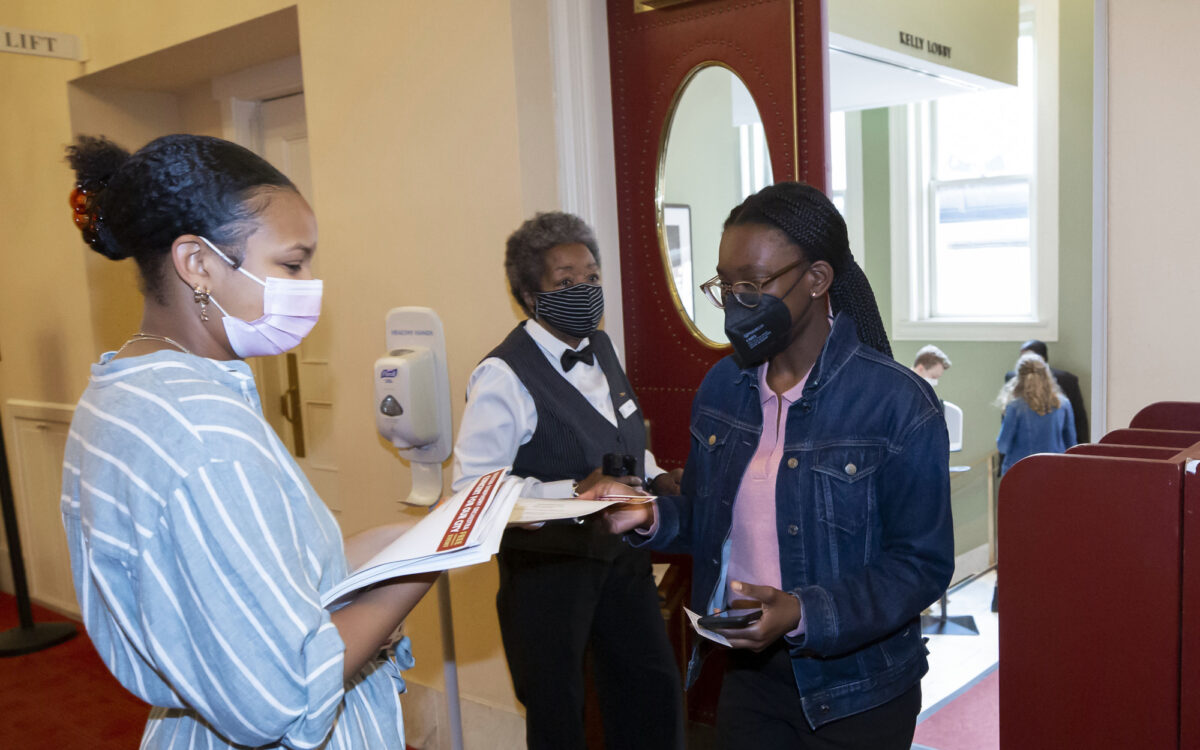
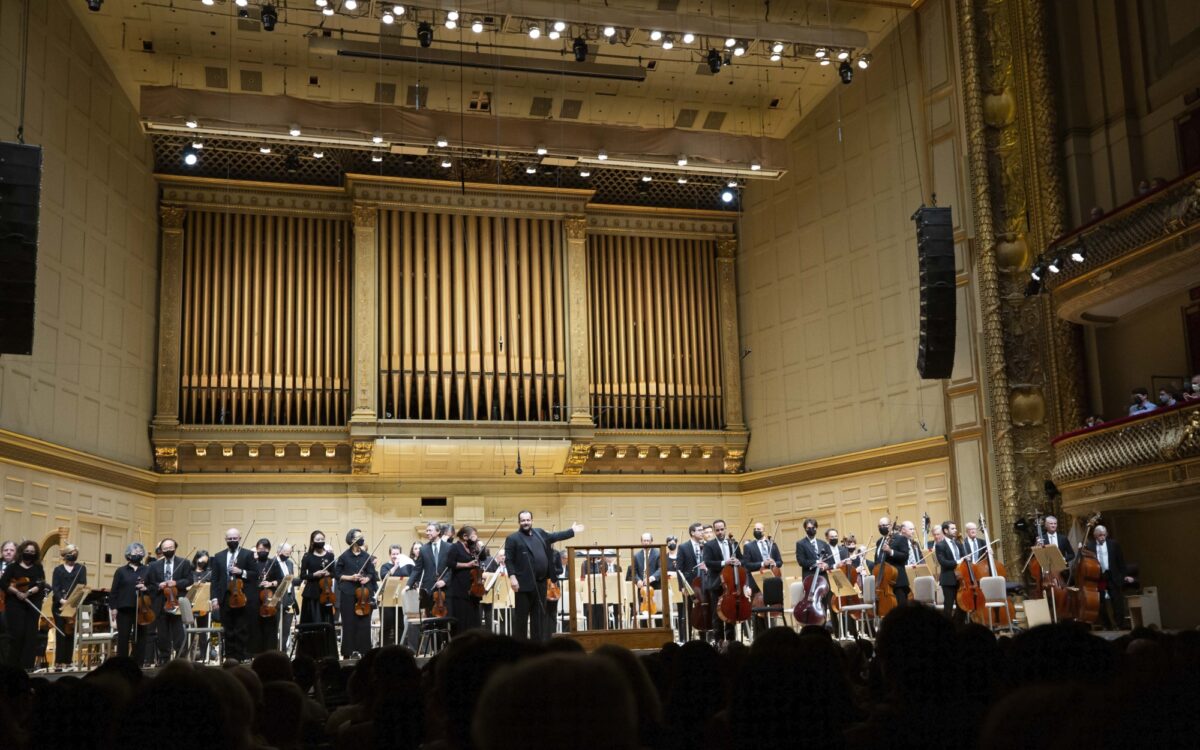
Ray and Maria Stata Music Director Andris Nelsons and the BSO welcome a full house to Concert for Our City: Reunited at Symphony Hall.
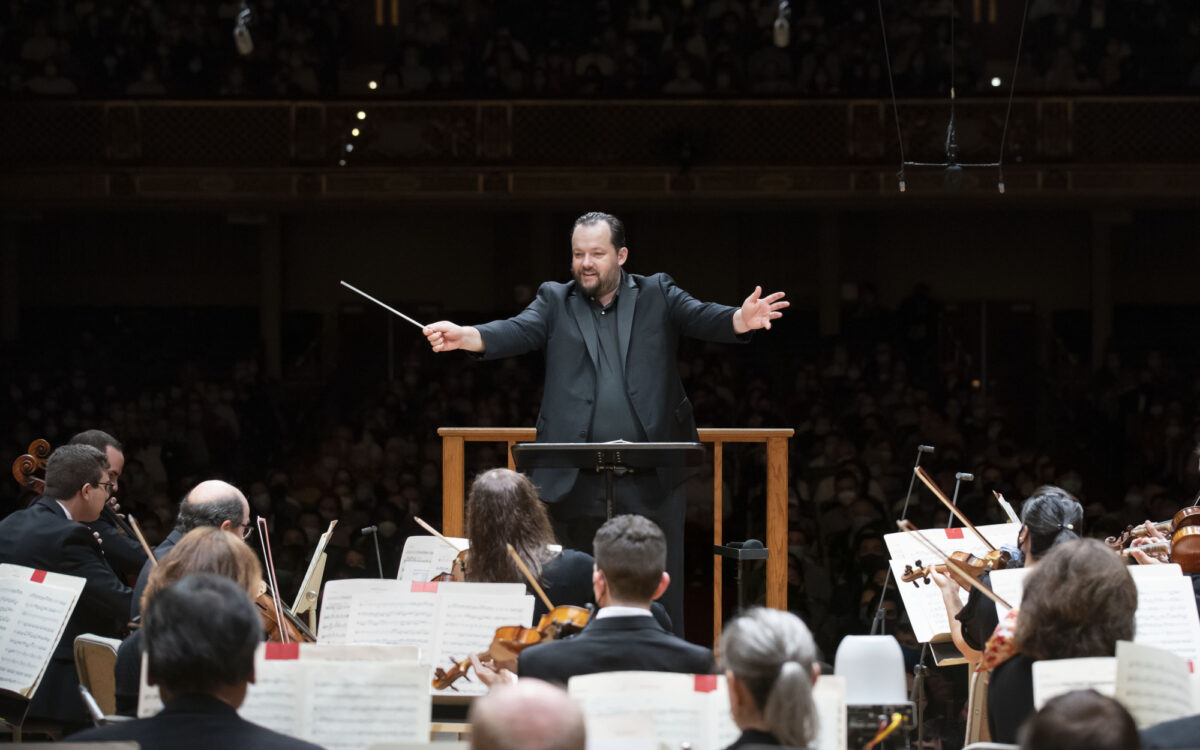
Ray and Maria Stata Music Director Andris Nelsons conducts the BSO.
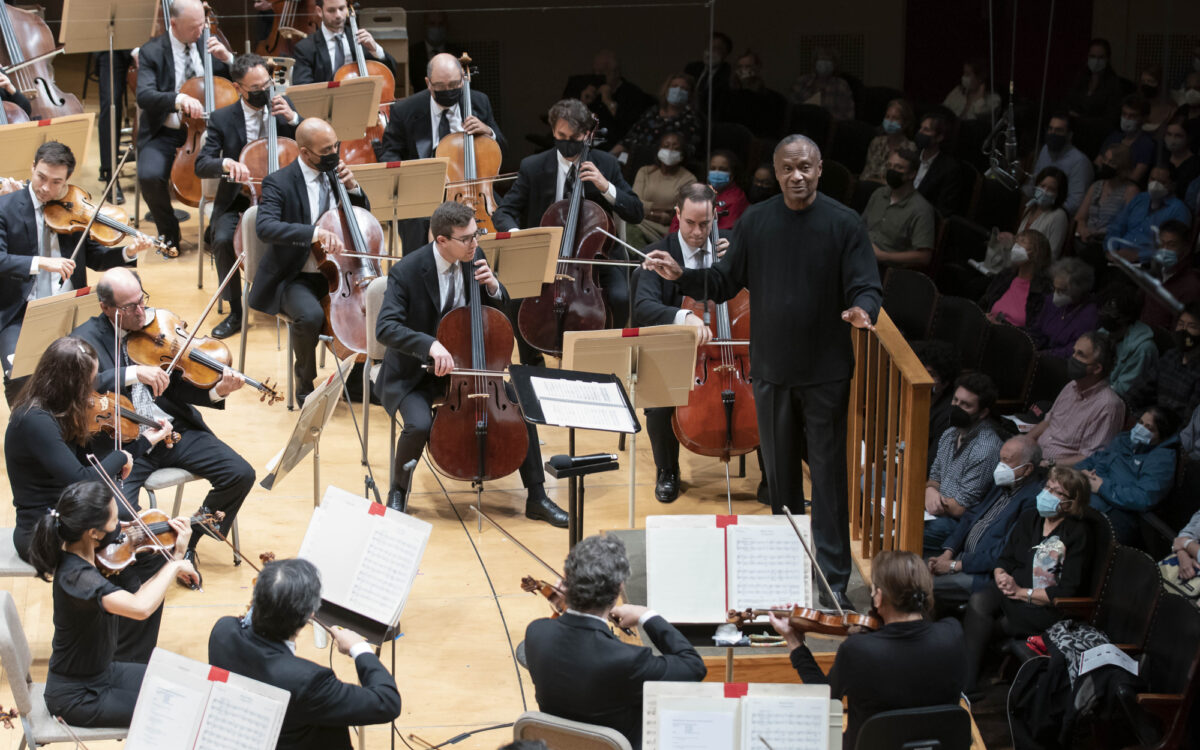
Germeshausen Youth and Family Concerts Conductor Thomas Wilkins conducts the orchestra.
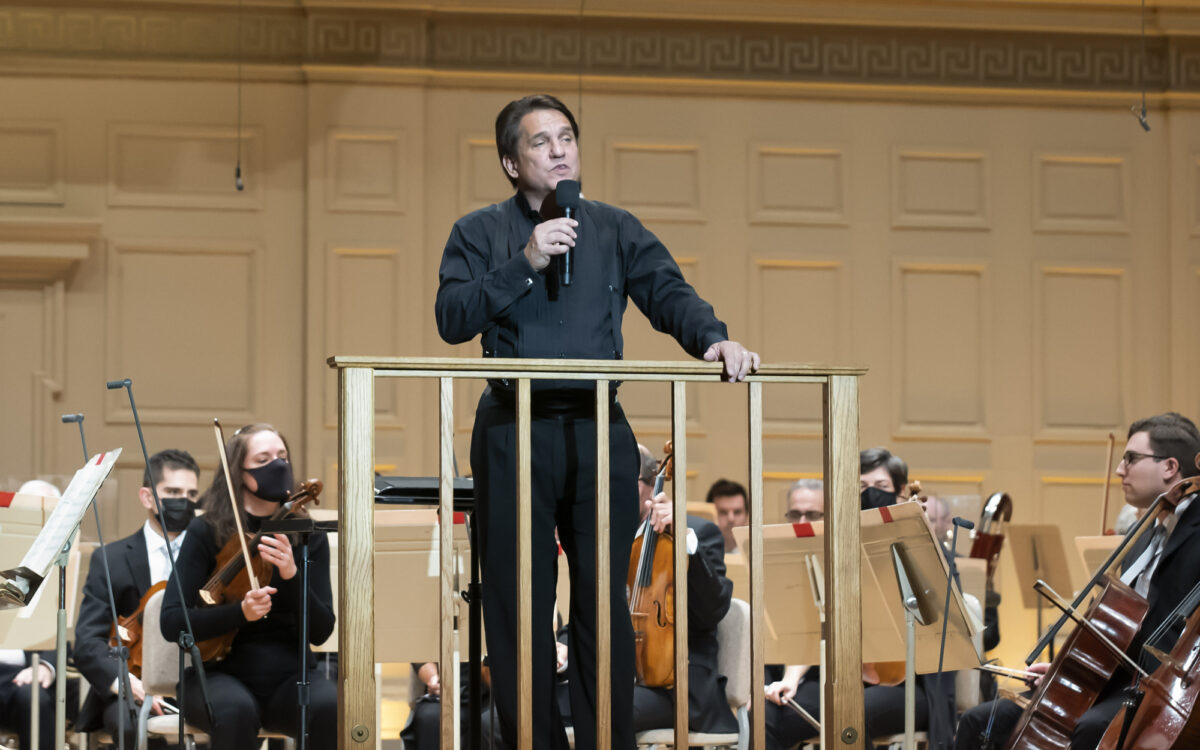
Julian and Eunice Cohen Boston Pops Conductor Keith Lockhart addresses the audience during the performance.

George and Roberta Berry Boston Pops Conductor Laureate John Williams conducts selections of his own compositions joined by violinist Anne-Sophie Mutter.
